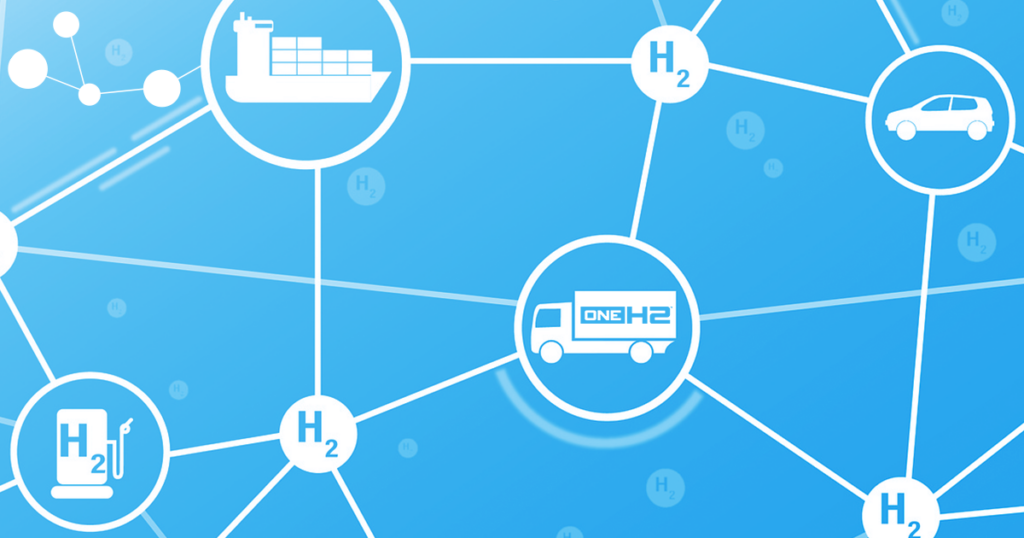Hydrogen fuel is rapidly gaining popularity in the energy industry as a clean alternative to gas and electricity. It is considered a zero-emissions fuel and cleaner than internal combustion engines that run on propane, gas, and diesel. However, there is still confusion surrounding how it works and how clean it really is.
Defining the attributes of hydrogen fuel is more complex than with other fuel sources. The simple answer is that hydrogen is zero-emissions at the tailpipe. The more complicated answer is that the process used to produce hydrogen fuel and the logistics of transporting it to its end use can result in carbon emissions, depending on the energy source and method of generation.
In industrial settings, hydrogen benefits the workplace environment by improving air quality for workers, even though it produces emissions during production. For this reason, it meets regulatory standards for zero-emissions. Responsibly sourcing hydrogen can help achieve the greater goal of reducing carbon emissions. However, until better energy infrastructure options are developed for consumers in the United States, this will remain a costly endeavor.
The Good News: Fuel Cell Electric Vehicles are Zero-Emissions
To be considered zero-emissions, a vehicle must not emit carbon dioxide or other harmful emissions from its exhaust pipe. Currently, hydrogen fuel cell-powered vehicles are one of the few types of zero-emissions vehicles in the world.
Fuel Cell Electric Vehicles (FCEVs), which include hydrogen-powered automobiles, trains, forklifts, boats, etc., combine hydrogen and oxygen from the air to generate electricity in an “open system” electrochemical reaction. This process only produces heat, electricity, and water in the form of steam to power the electric motor that keeps the vehicle running.
From a performance standpoint, this means FCEVs remain a clean, efficient, reliable, and quiet power source regardless of their current fuel level. They also do not require plugging in to recharge and can be refueled with hydrogen for an immediate return to full power.
FCEVs are considered zero-emissions because the reaction to produce electricity is completely free of toxic carbon emissions. This means, FCEVs lead to better air quality, particularly in smaller areas like warehouses or cities.
The Bad News: Hydrogen Technology is Still Cheaper When Sourced from Natural Gas
Since hydrogen fuel is a newer technology, its efficiency and sustainability are still being improved. Hydrogen is currently produced most efficiently and cost-effectively through Steam Methane Reformation (SMR), a method that requires methane, usually from natural gas, to produce hydrogen. Although SMR is an improvement over burning fossil fuels, it does produce carbon emissions. However, these emissions only occur during hydrogen production, and once the hydrogen is bottled and used by FCEVs, there are no harmful emissions from the tailpipe.
Hydrogen continues to outperform gas in terms of overall carbon output versus energy density. The carbon intensity or carbon index (CI), which measures the grams of CO2-equivalent emissions per megajoule (MJ) of energy, is typically lower for hydrogen than gas due to its production through SMR, which is a less carbon-intensive process than gas production.
Fortunately, SMR is not the only way to create hydrogen. Electrolysis is quickly catching up to SMR as a more sustainable alternative to fossil fuels. Hydrogen produced through electrolysis is as green as the electricity used to produce it because it uses an electric current to split water into oxygen and hydrogen. If the electricity for this process comes from renewable resources, electrolysis can create hydrogen fuel without releasing any carbon emissions into the atmosphere, making it genuinely net-zero from a carbon standpoint!
To continue reducing our carbon footprint, sustainable and efficient methods for hydrogen production should be developed. This will help to further reduce the carbon index of hydrogen and make it a more viable alternative to traditional fossil fuels. As we strive for a more sustainable and efficient future, hydrogen fuel will continue to play a crucial role.
OneH2 is at the forefront of hydrogen technology, striving to provide more sustainable power solutions for industrial applications. We are continuously working towards making hydrogen a more accessible and sustainable source of carbon-free energy. While hydrogen power still requires improvements, our goal is to keep building the necessary infrastructure, technological developments, and cross-industry partnerships to make zero emissions a realistic target for every business.
Please support us by following us on LinkedIn.
